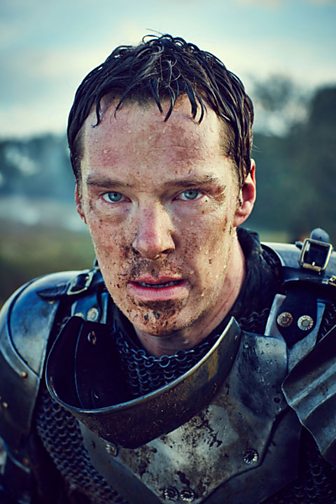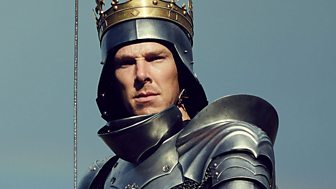Richard III
Played by Benedict Cumberbatch
| Fact title | Fact data |
|---|---|
| Historical figure |
|
Benedict on playing Richard III
How did you connect with the character?
In Shakespeare鈥檚 story, Richard is fostered at a distance from the Kennedy-like family of perfect specimensBenedict Cumberbatch
In terms of tackling the real historical figure versus the fictionalised version in Shakespeare, I think we’re smart enough as audiences that the two can coexist. The script does all the heavy lifting. Richard tells the audience about how wrong he feels in his body, about being dejected and overlooked, and about being unable to be part of a royal courtly life with the Plantagenets. In medieval England if you were not born perfect, you were often drowned at birth. It was a terrible social taboo. In Shakespeare’s story, Richard is fostered at a distance from the Kennedy-like family of perfect specimens. There’s very little care for him. His deep-seated anger and hurt leads to his ambition and everything we know of him. That was our way into humanising him.
Do you see Richard III as a villain or as an antihero?
His arc is hugely brilliant. In Richard III he gives a speech about how he’s going to go and kill the king, Henry, and how this ties into his feelings about himself as a disabled man. I think that humanises him. As an actor you have to flesh out your character. You can’t pantomime with the daggers and the looks, because that gets really dull. There’s such humour in other moments where Richard relishes his plans. He’s an antihero because he lures us in. He’s very funny, hopefully. Audiences don't necessarily side with him but they revel in his villainy! I also don't want to burden Freudian analysis onto him and make him more understandable. I don’t want to say, ‘Oh, he’s just a victim of this cruel world. Oh, what other choice did he have?’ Of course he had choices. He very clearly makes the wrong ones and suffers the ultimate downfall for that.
How do you reconcile the play with the historical Richard III, whose remains were recently discovered?
Physicality has always been at the centre of playing Richard III. He is very clearly described as being a hunchback with disproportionate legs. His physicality is there in the play and the script, in his own analysis and in other people’s name-calling. It is unavoidable. On camera, anatomical accuracy is even more important because of the scrutiny provided by the lens. In the opening shots of Richard III, we have the character topless so you can see every detail of the curvature of his spine. It took me about 3-4 hours to put on the prosthetics. The weight of the silicone is incredible. It’s painted to match the skin tone and it looks distressingly real. By contrast on stage Richard’s body has always been something to hide.








